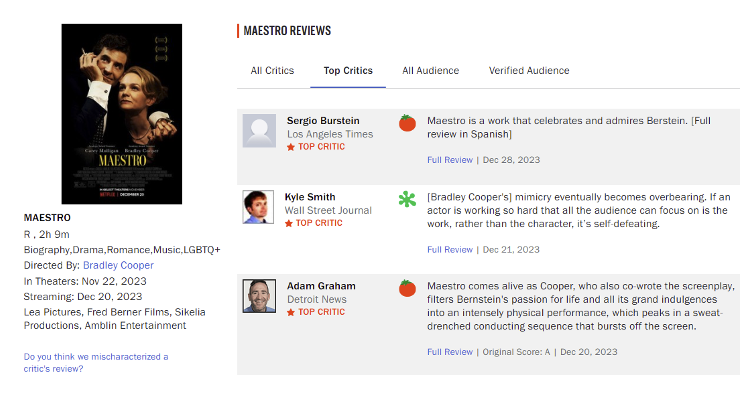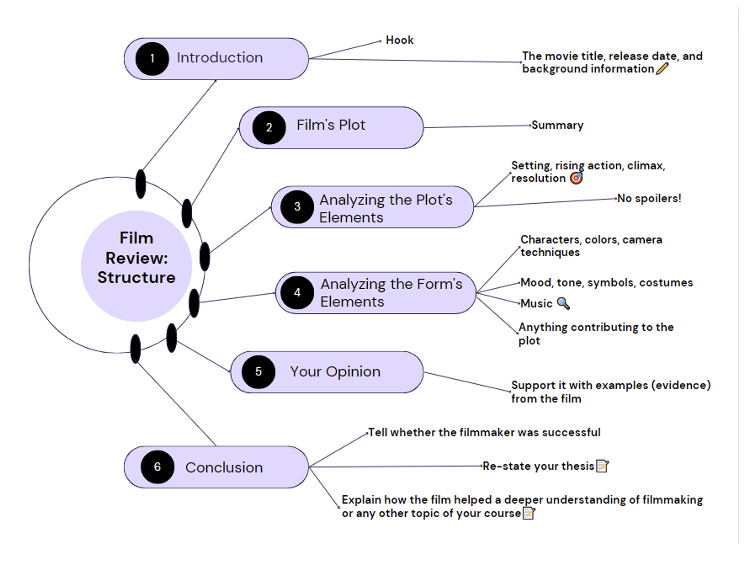Your 5 Exclusive Tips on Writing a Film Review
Rent film gear from local filmmakers.

Rent film gear from local filmmakers.
Critical thinking and understanding the contexts behind other specialists' work are essential for a filmmaker. As a content creator, you should "read between the lines" and explore meanings deeper than "This movie is a masterpiece/a disaster!" Writing a film review can help here:
It's a practice of watching movies as a critic, not an average viewer. You'll analyze a film's structure and the effects a maker uses to influence a viewer's brain. Writing film reviews allows you to learn the history of cinema, directing techniques, cinematography styles, production, and neurocinematics. All this will help you find your own filmmaking style and choose the tricks for your work.
And now, to practice:
What is a film review? How do you write it so it would be of practical use? Or, maybe you're a student filmmaker looking for the write my term paper assistance on a corresponding topic? The below tips are for your service.
What Is a Film Review?
A film review is a written analysis and evaluation of a movie's narrative and formal elements. You write it for others to understand what a film means, how it means that, and whether it's worth watching.
Reviews include a movie plot summary and a critical analysis of its context. Authors discuss the film's content and form, sharing their perspectives about the work.
We see reviews at movie databases like Rotten Tomatoes, news publications, and thematic blogs. If you don't like writing, you can also record or film your review, placing it on streaming or podcasting platforms.

How to Write a Movie Review: 5 Tips to Consider
Below are your practical tips on writing a stellar film review. Check what elements to include, how to structure a text for better readability and engagement, and what to do with your review once you finish the draft.
1) Watch a film like a pro. Twice
First, watch it as if you're a super picky movie fan. Note any interesting details, plot twists, alternative storytelling techniques a creator used (if any), characters' motivations, etc. Write down all unusual or intriguing factors you've noticed.
The next day, watch that film again but evaluate it as a filmmaker now. Pay attention to cinematography (camera angles, types of shots), lighting, CGI, sound, thematic arcs, etc. Consider everything the audience might find interesting. Take notes; you'll need all this information when writing this film's review.
2) Start your review with a hook and avoid spoilers!
Before writing, answer two questions:
1. Who is my target audience? (Who will read my film review?)
2. Where am I going to publish it?
Your review's structure and the elements you'll include there may differ depending on the audience and the platform. If you write for a movie fan website, you'll focus on the plot, character analysis, and acting. When reviewing for fellow filmmakers, you'll tell more about cinematography and special effects. For a news outlet, a film summary focusing on the cast, production, release, and box office will be more relevant.
Depending on the audience, you will adjust your writing style accordingly. Decide whether it's better to use formal language or keep your tone friendly and conversational. Also, think of a compelling hook to start your review:
It's an instrument to grab the audience's attention and keep them reading. Start with a quote, an intriguing question, or a surprising fact about the movie. But:
Ensure you avoid spoilers!
If speaking about storylines or characters, please don't reveal plot twists. Keep your description as generic and unbiased as possible. If writing for an audience who has already watched the film, you may include a spoiler alert at the top. Focus on technical aspects, performance, and direction instead.
3) Remember to discuss the form
As a filmmaker, you can't limit your review to a movie's content (setting, plot, and characters) and a generic opinion on whether you liked it. Mention the main points for readers to understand the context — and move on to discussing the form.
A film's form includes the following elements:
● Cinematography: camera moves, angles, distance, shot types, etc.
● Sound: soundtracks, their relation to particular scenes, the mood music creates, etc.
● Lighting: color palettes, light effects, light-dark contrasts, etc.
● Editing: a movie's flow (transitions between scenes, shot lengths, etc.
All these details can help you learn more filmmaking tricks and understand their influence on the overall project.
So, here is the structure of your film's review:

4) Include citations
Readers will understand a movie's mood and context better if you include some citations in your review. When watching, note short dialogs or phrases communicating the film's nature and place them in your text wherever relevant.
You can also consider quotes from the movie's makers. Check some interviews of the director and producers, and read the cast's stories about working on that film. Are there any insights or compelling details to include in your review? Feel free to cite the director when you need to support your claims or address citations when analyzing the movie's context.
5) Share your opinion but support it with evidence
It stands to reason that film reviews are also about the author's opinion. However, the audience will only trust your opinion on a movie if you support it with arguments and documented evidence. When writing, refer to credible sources to prove your criticism is valid. Remember to include the reference list if writing an academic paper or link to the corresponding resources in the text when publishing your review online.
And last but not least:
In the concluding paragraph, summarize your reaction to the film and tell readers whether you recommend watching it.
Also, remember to proofread and edit your review before publishing. Ensure you didn't misspell any names, dates, or definitions. Read your review out loud:
● Does it flow logically? Is everything clear?
● Is it easy to read?
● What mood does it communicate: Do you approve or boo this film?
Every detail matters for a film review to become A-worthy.
Ready to Write Your Professional Film Review Today?
Movie reviews are advantageous for filmmakers to practice as they encourage critical thinking and a deeper understanding of filmmaking and content creation. You analyze a film's content and form to learn the niche techniques and share your unbiased opinion on the project.
When writing a film review, it's critical to consider the target audience and the platform you'll use for publishing. These factors will help you structure your review and make it sound professional. Why not practice film review writing today? Choose a movie, take tips from this article, and craft the stellar content piece your audience will love.





















